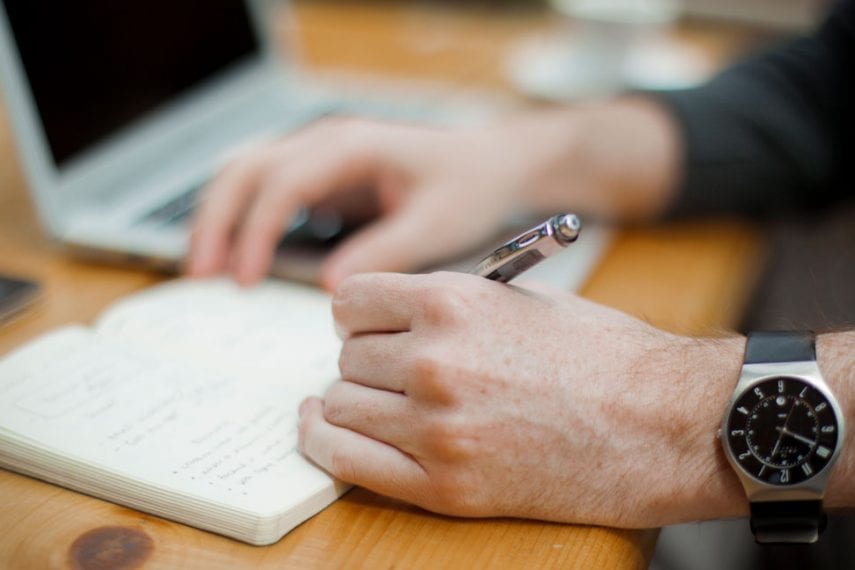How to Cope With Cravings During and After Addiction Treatment

Knowing how to cope with cravings is one of the most important skills you need to carry you through the recovery process. These 5 ways to get through the challenges of cravings could help.
Thanks to advances in addiction medicine, there is now a fairly wide variety of relapse prevention medications on the market to help people with certain kinds of addiction minimize and cope with cravings during and after treatment. For people with opioid, alcohol, and nicotine addiction, these pharmacological interventions can be a vital part of recovery and significantly enhance both short and long-term outcomes.
But if you’re struggling with an addiction for which such medications don’t exist, or you have chosen to not take such medications, things can be a bit more complicated. In fact, even people who are on relapse prevention medications can experience breakthrough cravings that can be both uncomfortable and a very real relapse risk. For all recovering addicts, both acute and “constant cravings can lead to frustration with and abandonment of the path to recovery altogether.”
While comprehensive addiction treatment has likely taught you a number of strategies for coping with cravings, remembering and implementing them throughout treatment and once you’re back home can sometimes be a challenge. Here, we explore how to cope with cravings and stay strong through your ongoing recovery process.
1. Get Moving
Physical exercise can be a great way to engage your mind and body in a healthy activity that is known to disrupt cravings. While virtually any form of exercise will work, it doesn’t have to involve strenuous effort or extensive preparation. In fact, simply getting outside and walking can be enough to stop even strong cravings. As Dr. Elizabeth Hartney points out, “The gentle, bilateral stimulation of walking is great for calming down an agitated mind. And with walking’s positive effects on breathing and the nervous system, you’ll find the cravings will subside considerably after 15 to 30 minutes.” On a biochemical level, exercise also promotes the release of endorphins, dopamine, and other feel-good chemicals that can buoy you emotionally and ease agitation.
Hope is Just a Phone Call Away
866-922-13502. Talk to Someone
Sharing your thoughts and feelings with another person can be deeply cathartic, whether you want to vent, are looking for encouragement, or just need to feel connected to another person to stay grounded through your craving. Calling up a close friend or meeting a trusted family member for coffee can be a great way of coping with these difficult moments. If there is something specific you want your loved one to do to support you, don’t be afraid to tell them; chances are they’ll be happy to help in any way they can.
For some people, recovery meetings such as AA or NA provide a perfect environment for talking through your cravings. Free meetings are available all over the country, and in many cities you can find a group to connect to virtually any time of day. If you can’t access a meeting at the exact moment you need, there are also a number of online recovery communities and apps that let you talk to others who know what you’re going through 24 hours a day, anywhere in the world. The value of human connection, whether virtual or up close and personal, cannot be underestimated when it comes to getting through hard times.
3. Journal Through It
Writing is often an instrumental part of the recovery process and gives you a meaningful way of externalizing thoughts by putting pen to paper (or fingers to keyboard). If you’re not quite sure how to get started, here are some prompts that can help you get going:
- Why is sobriety important to you?
- What about your recovery makes you proud?
- What are the consequences of using?
- What are your goals and what are you looking forward to?
- What is the best part about not using anymore?
Remember that there is no right or wrong way to journal; whether you use stream of consciousness writing, list-making, formal paragraphs, or mind-mapping, what’s important is that you do what feels right for you. In this way, you can remind yourself why you are doing the work of recovery and the value of staying clean, helping you reframe sobriety as an asset rather than a loss.
We're Here to Help. Call Today!
866-922-13504. Go With And Trace the Craving
Going with the craving doesn’t mean using. Instead, it describes a technique in which you “let cravings occur, peak, and pass; in other words, to experience them without either fighting or giving into them.” You might imagine it as riding a wave, letting it carry you, and knowing it will subside. According to the National Institute on drug abuse, “the purpose is not to make the cravings disappear, but to experience them in a different way that makes them feel less anxiety provoking and dangerous and thus easier to ride out.”
While you are experiencing the craving, it’s important put yourself in a safe place emotionally and physically, such as a comfortable, non-triggering part of your home. Let yourself relax and non-judgmentally observe what your body is feeling and what your mind is thinking. What are you experiencing and how does your craving behave? Are you feeling distress in a particular part of your body? Where do your thoughts drift? Many find that this method allows you to accept your cravings and make them into a non-threatening part of the recovery process rather than something to fear.
After the craving has passed, consider what led up to it. Was there a specific trigger, such as a person, place, or activity? By identifying the origin of your craving, you can take active steps to avoid it in the future, helping you feel a sense of control and mastery over your recovery experience.
5. Distract Yourself
While for some going with the craving or talking or writing through are effective coping mechanisms, others find that such activities only make them focus more on the craving thus making it stronger. If that’s the case for you, distraction can be the best strategy.
Distraction can involve any healthy activity that provides an alternative to using and takes your mind off your craving, whether it’s going to a movie, cleaning the house, playing with your dog, getting a massage, or reading a good book. In fact, Anne Hsu, a behavioral scientist at Queen Mary’s University of London, says that simply imagining distractions can be enough to cut through cravings. She tested her theory using iCrave, an app for food addicts designed to “hijack people’s thoughts by asking them to do certain tasks – such as imagining a forest, or a white horse – to interfere with the food they were imagining beforehand.” Users of the app reported that this mental redirection significantly reduced the intensity of their cravings and prevented relapse. According to another study, even playing Tetris for a few minutes diminishes cravings for food, drugs, and sex.
Begin Your Recovery Journey Today
866-922-1350If Cravings Don’t Subside
Cravings are a natural part of the recovery process and their resurgence shouldn’t bring terror. However, if you find that your cravings are too overwhelming to get through comfortably or you feel very close to using again despite your best efforts, don’t hesitate to contact your treatment program to ask for their recommendations. Connecting with ongoing continuing care resources is often a vital part of the recovery process, and can give you structured support as you travel the path of healing. If you do not feel these resources are enough or if your cravings have led you to relapse, it may be time to consider a new residential drug addiction treatment program or an Intensive Outpatient Program that will help you identify the underlying causes of your addiction and remove the obstacles to recovery once and for all.
For all recovering addicts, it’s important to remember that recovery is a journey, not a destination. With the right supports at the right points in the journey, you can create lasting freedom from addiction and restore your sense of self-determination, purpose, and joy.
Alta Mira offers a range of comprehensive treatment programs for people struggling with drug and alcohol addiction as well as co-occurring mental health disorders and process addictions. Contact us to learn more about how we can help you or your loved one start on the path to recovery.






